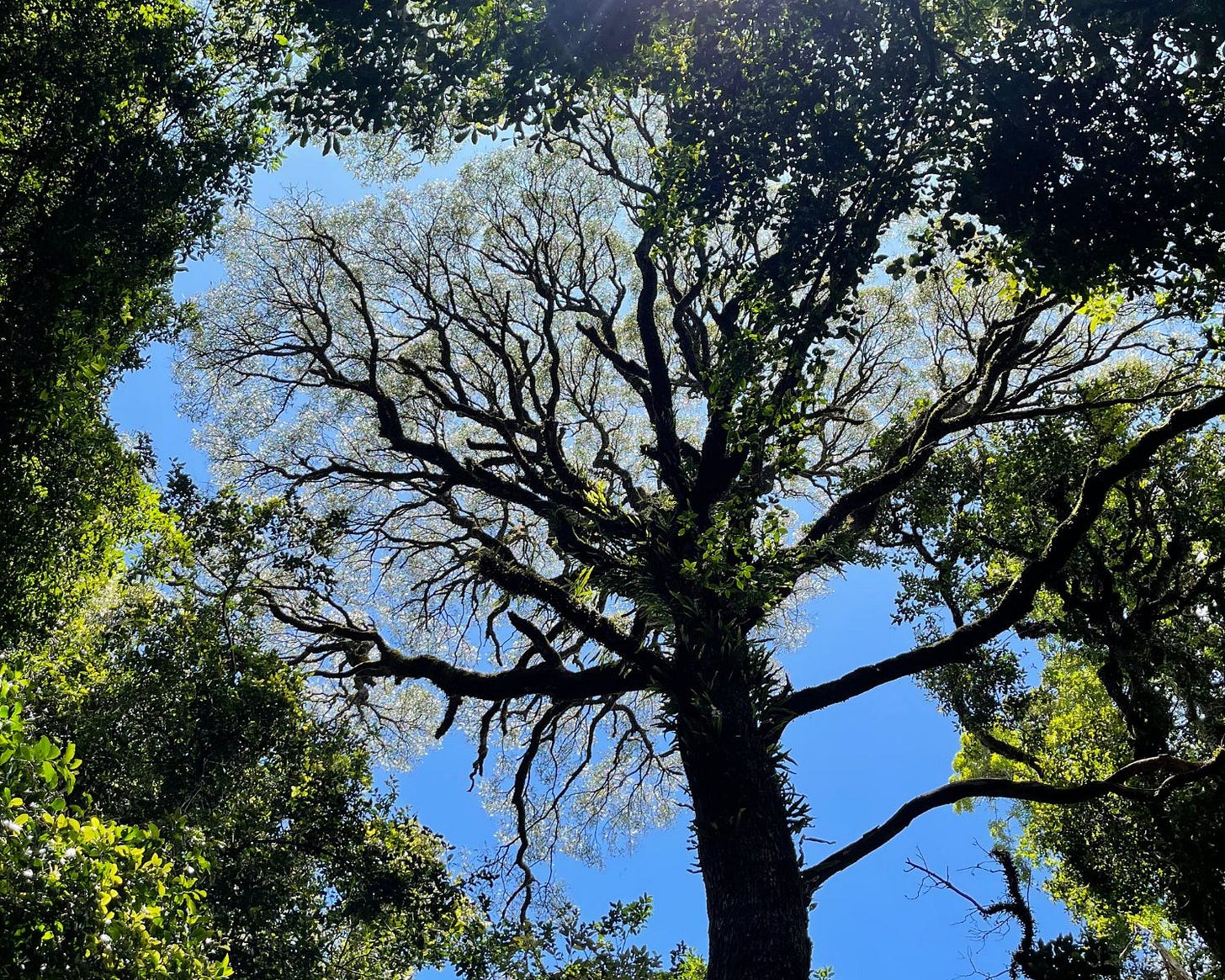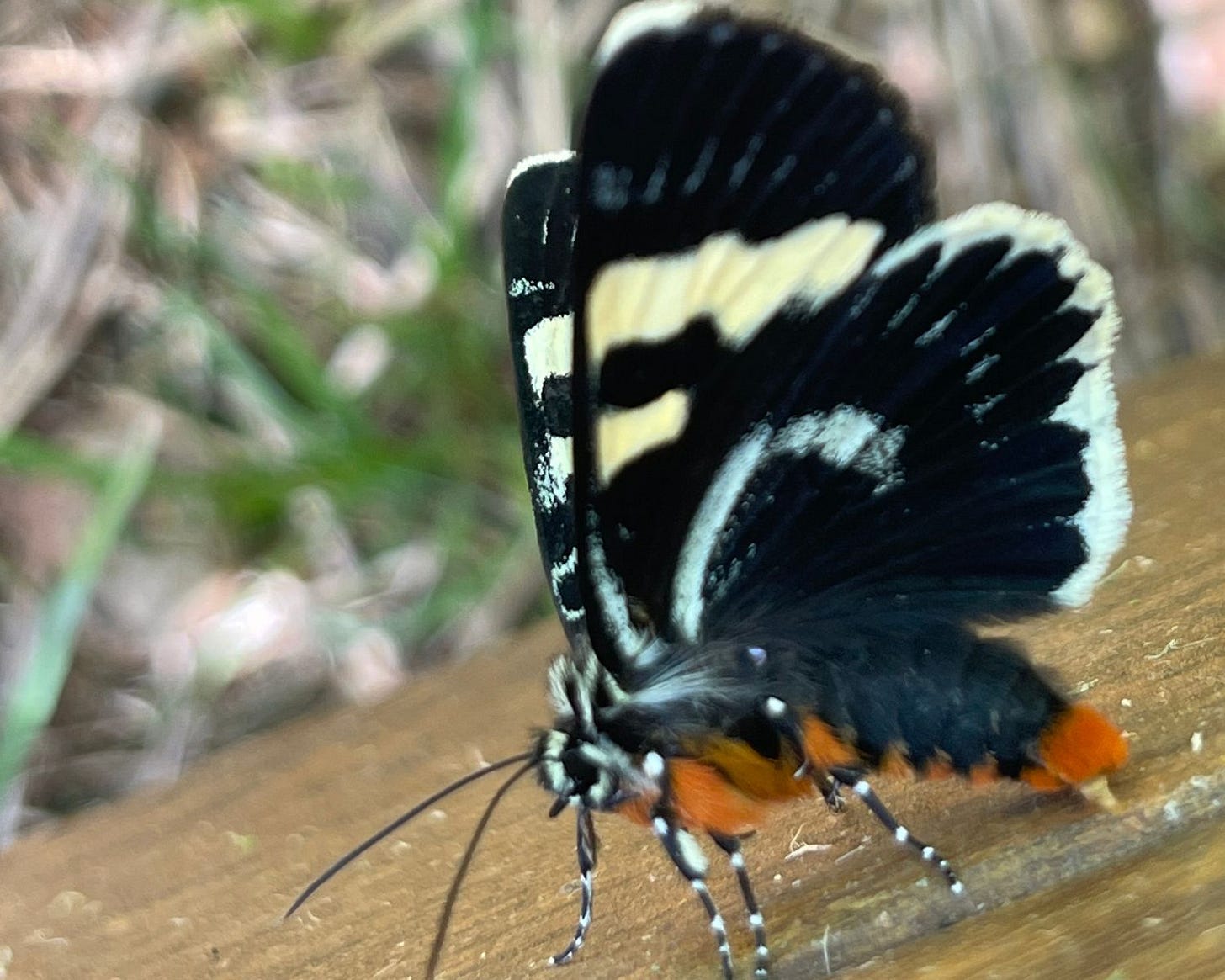What do we do with the half-finished things?
on embracing the quiet, the chaos and the discipline of creating
(This voiceover is an audio version of the newsletter below. As always, it’s unedited. If you like/need to listen to these posts I hope you enjoy it!)
I have a spreadsheet that acts as my editorial calendar here at The Tortoise. Not because I’m a particularly organised person (HAHAHA) but more because without it, I’d forget when new podcast episodes are meant to go out, or inadvertently write about the same topic three weeks out of four. Brain fog is a beast, man.
November and December’s topics were pretty much locked in weeks ago, with the exception of today’s letter. I left it blank, mostly because while I operate well within confines, things can’t be too confined, you know? I like to have wiggle room, and rarely have trouble filling a blank topic.
Except this week. This week, the blank rectangle in my Excel spreadsheet has stared at me for hours on end, at first patiently, as it waited for the idea to arrive, and then expectantly, foot tapping the floor as it willed me to come up with something. Anything.
I wracked my brain, I looked around me for inspiration, I went for a walk, I flicked through my many (many) half-written drafts on topics like contentment, letting go of anger and releasing the ideal of physical beauty, and it hit me: I don’t have a fully fleshed-out idea to share.
For a little while, I felt bad about that. I could feel the expectations and shoulds leaning on me heavily, telling me what I needed to do, telling me that anything less or different was bad.
But, as I’ve tried to do more this year, I stopped, stepped back and asked myself a helpfully blunt question. You don’t have an essay to share: So what?
We don’t always need to be producing. It’s not necessary for me to always have a fully fleshed-out idea. It’s not mandatory to produce a considered think-piece in all its neatly summed-up glory. We don’t always think like that — in lessons and takeaways and nice little moments of clarity. Or at least I know I don’t always think like that.
Sometimes we find ourselves in periods of listening, absorbing and consuming.
Sometimes we find ourselves in periods of silence and rest and reflection.
Sometimes we create in haphazard, chaotic ways, throwing ideas at the page (or canvas or soil or clay) seeing what sticks and what doesn’t.
And yes, sometimes (but only sometimes) we pull together entire ideas, full essays, finished paintings or sculptures or garden beds, feeling that, at least for a while, they’re a complete thing.
Does that period of finishing make all the other stuff worthless? I don’t think so.
That other stuff is the compost in which we grow ideas. It offers the quiet, the richness, the warmth we need to cultivate things. And those haphazard, chaotic, half-written ideas? They’re the seeds. Every time we make something, write something, notice something, or think a fragment of a thought about something, we’re casting them into the compost. Some of them will take root and grow, blooming into something whole and wonderful. Some of them will erupt from the soil but wither and die before they get a chance to blossom. And some will never germinate at all. Those half-realised things are just as valuable as the flowers and fruit because they return to the earth, mingling with the compost, making it richer and warmer — a fertile place for more ideas to grow from.
Sometimes I fall into the trap of thinking that we can and should operate like machines. Consistent and measured and productive in acceptable, expected ways. But we’re not machines. We’re deliciously, painfully, wonderfully human.
So with that in mind, here are a few of my seeds. They’re from abandoned drafts and notes I’ve scribbled and voice memos I’ve left myself while driving. Fragments of thoughts and ideas I’ve been cultivating. I like them. I don’t know what — if anything — they’ll grow into.
On contentment
Contentment is about slowness and slowness is about contentment. Not settling necessarily but finding enoughness and satisfaction in who and what and where we are, right now, even if we’re working towards something different.
If we’re content, then we’re no longer vulnerable to the messaging of more.
If we’re content, we don’t feel so bad about ourselves that we’re going to spend money on skincare, diet products, dubious detox programs that promise rapid weight loss or better skin or shinier hair.
If we’re content, we don’t look to others for validation of our goodness or worth.
If we’re content, we don’t look for The Answer — which we so often try to find in products, people, movements or philosophies.
On letting go of anger
Then, one day those words appeared in my journal. I’m so angry. And it was a floodgate opening. A tide I couldn’t stop, even as it filled me up and overflowed.
I’m so angry at…
I’m so angry because…
I’m so angry I…Once I realised I was angry, I spent a long time being angry. Fuming and blaming and getting more and more stuck as the water rose around me.
It felt good and right to give myself over to it — I’d denied myself anger for so long, instead holding myself responsible for the actions of others — so I floated in that water for a while. Probably too long. Because eventually, anger became something more than just the water. It became something to cling to; a life raft in the flood. Sorry, I can’t move on. Sorry, I’m stuck. Sorry, it does look nice over there, but this discomfort is actually very comfortable. Thanks all the same.
Eventually though, I began to notice things outside my anger. I noticed how the stream of it had become a lake had become a river had become an ocean. I noticed how the shore I set out from continued to get further away. I noticed how I floated, rudderless, and I noticed how anger had taken my ability to navigate. I had to go wherever it took me.
Finally, I got angry at being angry.
Over time, I began to loosen my grip on that life raft, and faced up to the fear of what might happen if I let go. If I let go of that comfortable discomfort. If I let go of the anger that had become my norm.
Now, I practise.
I practise prying loose my stiffened fingers one at a time. Practise convincing them to stay soft, to let the rough surface of the life raft scrape by underneath. To feel the emptiness that exists between letting go and whatever comes next.
The breath held before the splash.
On releasing the ideal of physical beauty
Here’s the number-one way I avoid the worst of the relentless pressure served up by toxic beauty culture:
I can’t be bothered.
I can’t be bothered colouring my hair. It costs a lot and requires upkeep and here’s the thing no-one will tell you — grey hairs are delightful. They show days lived and lessons learned.
I can’t be bothered even thinking about botox or fillers or plastic surgery. Not because I’m enamoured with my appearance or believe myself to be beyond improvement but because it’s expensive and time-consuming and also: improvement of what? To what? Who decides the definition of better? And why does so much of it have to do with how I look?
I can’t be bothered looking into what skincare products will make my face appear more taut or youthful or bright. I wash my face with raw honey and moisturise with jojoba oil. I used to use a couple of serums and an eye cream, a night cream and a day cream, and it would cost me about $250 a month. Now, I buy raw honey by the jar from our local bulk foods shop for about $10 and a 500ml bottle of jojoba oil that costs $60. Both last me at least three months, usually way more, and my skin is still doing an excellent job of holding my face together, allowing me to smile, displaying creases and wrinkles the passage of time.
I can’t be bothered listening to people whose sole aim is to sell me stuff. Of course they’re going to tell me I’m broken — they’re selling the fix.
I can’t be bothered.
But also, I can be bothered. I can be bothered thinking about the ripple effects of self-loathing. How it has affected my generation and how we have the choice now to pass it on to our children or to have it stop it with us.
Reading back over these it reminds me that the half-finished things have worth too. If we keep making and writing and thinking and trying, all those half-things begin to add up.
I’m Currently
Feeling excited. For anyone playing along at home, I finished the draft of my manuscript! I realised, just after I hit 70,000 words, that it was as done as it was going to get, and pushing through to 80,000 words just because I’d set an arbitrary goal would be a waste of words, time and energy. So now, I’m on to Draft #4 and it feels really good.
Smelling our Christmas tree. The scent of a pine tree is one of my favourite smells and now it officially feels like the holidays are getting close.
Sitting in the discomfort of things, knowing that it will pass. I think, after many years of trying to find shortcuts, moving through them is the only way through them.
Watching our garden explode into life. Recent rains and current sunshine mean everything feels so vividly alive. It’s intoxicating (and means a lot more weeding in my future).
Eating leftover veggie lasagne for dinner tonight and already excited about it. (I love leftover night.)
So here’s to seeds and half-things and growing and resting and whatever comes in between.
If you’re a paying supporter, I’ll be back in your inbox on Sunday with one final 1% post for 2023, and next Thursday’s letter features a wonderful guest post from Casey Lister, about letting go of perfection (in the garden, and I would say in life too).
Until then, take good care,
Brooke xx










I really resonate with the can't be bothered. You made me wanna get honey and jojoba. Come to think of it I have both already!!
Yes to being “deliciously, painfully, wonderfully human”, Brooke! The best share possible. And big congrats on your manuscript - that’s truly wonderful.